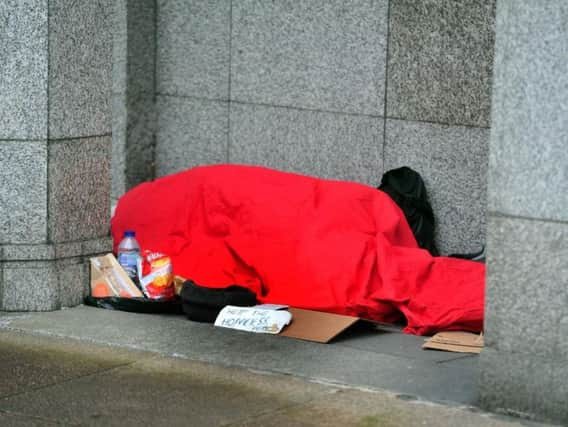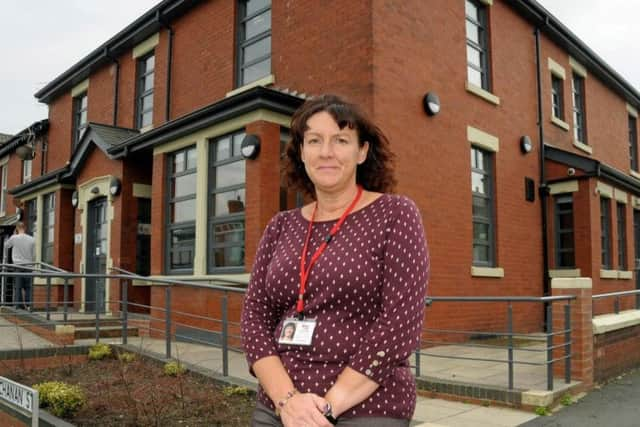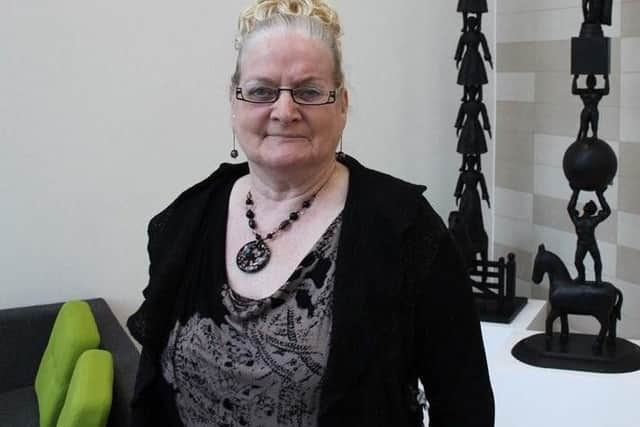Who is looking out for the resort's homeless?


But on any single night in Blackpool there are no such choices for the dozen or so people who find themselves sleeping on the streets.
Having no roof over your head is a grim way to live at any time of year, but especially during the coldest months.
Advertisement
Hide AdAdvertisement
Hide AdAll local authorities must carry out single night snapshot street counts to gain a picture of how many people are bedding down outside.


Most towns do these in October, but Blackpool waits until November when the Illuminations have finished in order to gain a truer account.
This year’s rough sleeper figure for the resort is 12, compared to 13 in 2017 and 11 in 2016.
Thankfully for those who do find themselves at rock bottom, there is a wide support network in Blackpool looking out for them.
Advertisement
Hide AdAdvertisement
Hide AdAgencies ranging from the council and the police to charities and community volunteers work together. Here we speak to some of those involved.


On the front line
Chris Holden works for Blackpool Council’s housing options team, specifically around rough sleeping.
His team helps carry out the annual head count, but is also out on the streets year-round offering support.
He said: “We rely on intelligence from other services such as The Bridge at the Salvation Army and Street Angels to find rough sleepers.
Advertisement
Hide AdAdvertisement
Hide Ad“One day we might target the town centre where toilets are a hotspot, another day we could go as far as North Shore and South Shore.
“We go out early in the morning, with someone from the council paired with someone from one of our partner organisations.
“Sometimes with certain individuals it’s a Rubik’s Cube. You might not get it right on the day but over time you put together what is the best way to support someone.”
First port of call
Charities including The Bridge project at the Salvation Army Citadel and Street Angels provide a lifeline for many rough sleepers – including those who choose to live on the streets instead of between four walls.
Advertisement
Hide AdAdvertisement
Hide AdFor some of these people, a conversation with a Street Angel and a cup of tea or coffee is the first help they get.
Paul Rawson, manager of Street Angels, said: “Some people have so many complex needs that they can’t live in accommodation.
“You give them a set of keys to a flat and you’re just giving them a whole set of new problems.
“We can’t give them 24/7 care and if a bill drops through the door, they can’t cope.
Advertisement
Hide AdAdvertisement
Hide Ad“Some would rather be on the streets, and sometimes someone gets accommodation and within days or weeks they are back on the streets again.”
The Bridge project offers vulnerable people practical help ranging from warm meals, toiletry packs and showers as well as sign-posting them to emergency accommodation where necessary.
Programme manager Beverley Taylor said: “If anyone comes to us as a rough sleeper we steer them in the right direction, but a lot of our work is around prevention of homelessness.
“For example a lot of people have problems with their accommodation or with Universal Credit.
Advertisement
Hide AdAdvertisement
Hide Ad“Sometimes people don’t want to engage and then suddenly they will, but under their own terms. We have had people like that who have been on the streets a long time.”
In an emergency
Blackpool Council has two emergencies shelters at Elm House and Vincent House.
During severe weather conditions, when temperatures fall below freezing for three consecutive nights, additional accommodation is opened.
This is the most basic of facilities, with sleeping bags and mattresses laid out on the floor so people have somewhere warm to go in order to prevent deaths on the street.
Advertisement
Hide AdAdvertisement
Hide AdThis winter it will be provided at St John’s Church following the closure of North Shore Methodist Church, which previously met the need.
Streetlife also operates a shelter for 16 to 25-year-olds. It has eight beds and average occupancy of 70 per cent.
In addition, the charity supports around 20 young people each day at its centre on Buchanan Street. These might be youngsters who are sofa surfing or still getting to grips with living as a grown up.
Streetlife chief executive Jane Hugo said: “Most young people who come to us have had some kind of trauma in their lives.
Advertisement
Hide AdAdvertisement
Hide Ad“This can be family breakdown or mental health issues. We had one young lad who came to us after he had been picked up off the beach.
“He had tried to kill himself twice in one week. But with the support we have been able to give him, his life now looks brighter.”
The charity was recently featured on a BBC documentary presented by broadcaster Stacey Dooley who followed the life of 18-year-old Josh.
He became homeless after his mum asked him to leave when she took up with a new boyfriend.
Getting a permanent home
Advertisement
Hide AdAdvertisement
Hide AdBlackpool Council’s Housing Options teams handle up to 3,000 people a year in need of support.
Its role ranges from advice to preventing homelessness among people who might be in danger of eviction, to providing emergency accommodation for those without a bed for the night.
Work also includes supporting tenancies and rent advice. In the longer term, staff can point people towards permanent accommodation.
Coun Christine Wright, cabinet member for housing, said: “The council is part of the Homeless Partnership which is doing a lot to support people.
Advertisement
Hide AdAdvertisement
Hide Ad“I joined the rough sleepers count and we found two people on a mattress, and a couple in a tent.
“They were known to the Housing Options team so they were asked to come in to get help.
“It was enlightening to see how this is being dealt with on the frontline.
“It’s sad to see people in this kind of situation but I fully believe our teams in Blackpool are doing the best they can, and it’s not just about a roof over their heads, it’s about providing wider support as well.”